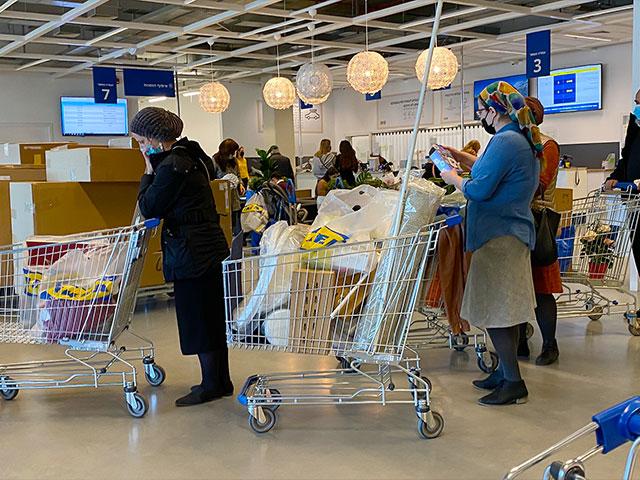
Israel started its third COVID lockdown on Sunday evening after numbers of those testing positive to the virus rose to around 3,000 per day.
Since last week, Israelis knew it was coming. Many were out doing last minute shopping and visiting before the closure went into effect at 5:00 PM on Sunday.
Much is the same as in the other lockdowns: no travel more than 1,000 meters (around a half mile) from home, except for special circumstances; visiting in someone’s home is forbidden; all non-essential stores and services are closed; restaurants are open for delivery only; businesses that don’t directly serve the public can operate with up to 50% of staff or 10 people, whichever is more; and leisure and cultural activities, as well as parks, zoos and bed & breakfasts are closed.
This time, however, children of all ages will continue learning at school according to regulations that were already in place.
The lockdown is scheduled to last two weeks, with the possibility that it will be extended.
According to an article in the Jerusalem Post, small business owners are promising to resist this third lockdown. Ilan Ben-Harosh is owner of an electronics store in Jerusalem and an activist for the business community.
“People cooperated in the first and second lockdowns. But everyone sees this as a political move, calculated by people making NIS 50,000 ($14,700.00) a month in the Knesset. I’m afraid there will be riots in the streets, even bloodshed,” Ben-Harosh was quoted as saying.
Elsewhere, Israelis had mixed reactions to the closure.
“It’s true that the government is taking care of its citizens, that it comes from a good place to take care of the people’s health, but on the other side we hear that people are falling financially so in fact, besides the coronavirus, besides what is called dying from coronavirus, people are dying because of other things, because of (loss of) livelihood, because of their mental health, people are going down,” said Tzvika in Jerusalem. “But, I respect this thing, personally I respect that and I’m getting ready for the lockdown properly.”
“In my opinion it’s not beneficial. I am respecting it, you know, because of the law but if you ask me I highly disagree,” said Galia Elbaz, in Tel Aviv.
“I think it’s necessary, I’m not sure that we all understand if it’s a real must to close all the country, but I trust the government knows what it does, it did it very well in the last two lockdowns and I believe this should be right until we have everyone get the vaccination,” said Oren Ziv in Tel Aviv.
In just one week, Israel has vaccinated more than 250,000 Israelis. Officials would like to see more than 100,000 people vaccinated each day. At that rate more than half the population would be vaccinated in about two months.
The remainder of this article is available in its entirety at CBN